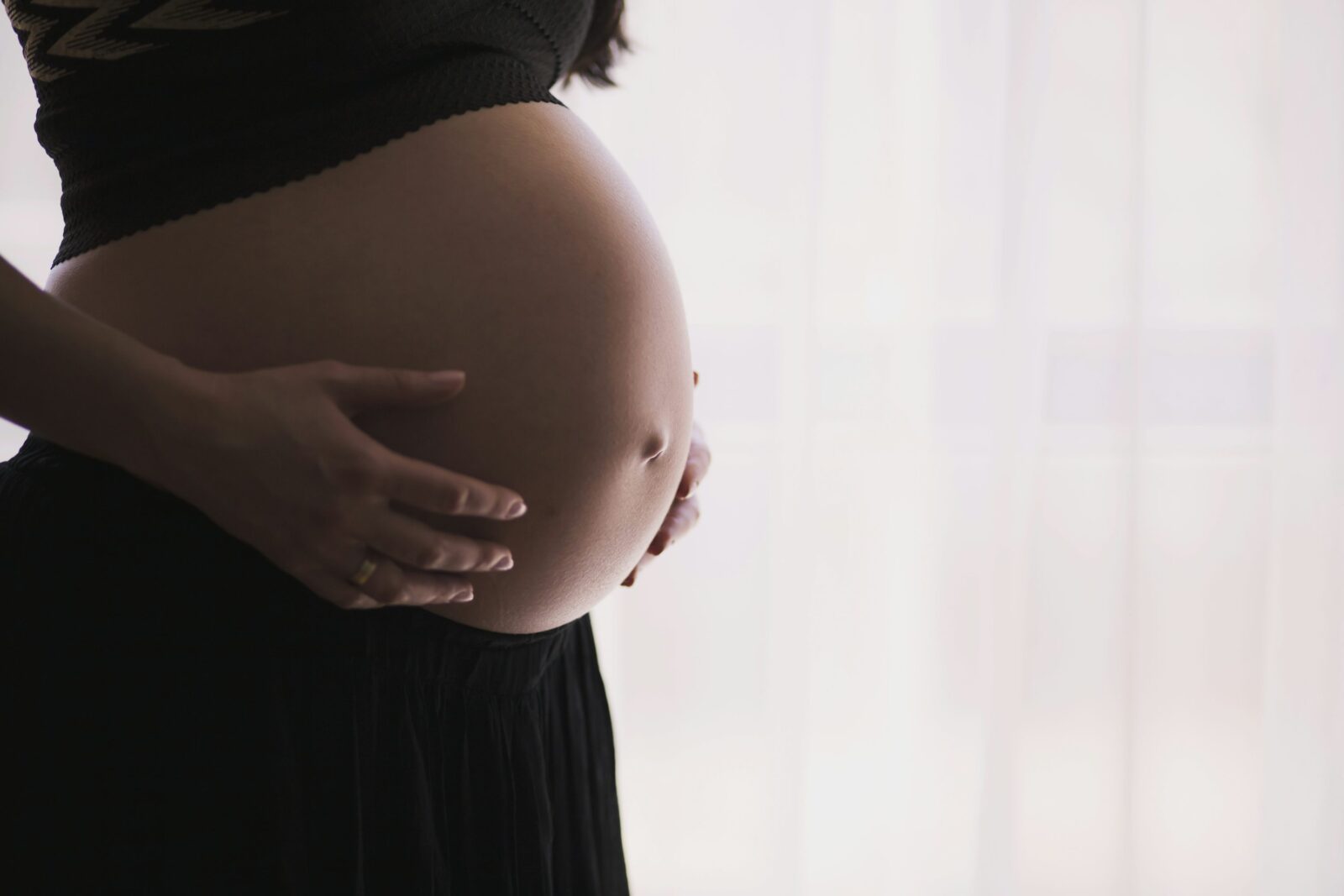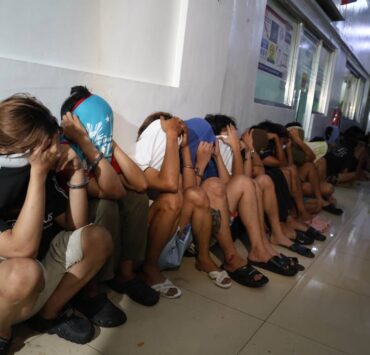Pregnant women lured by abortion services online

Women seeking to terminate unwanted pregnancies have turned for help to online platforms, where vendors openly offer “abortion pills” or herbal potions that are marketed as remedies to “regulate” menstruation.
A quick search of several e-commerce sites and even Facebook shows that these abortion pills can be purchased from anonymous accounts—although many of these are now inactive.
In a few public online groups, sellers even post glowing reviews about the efficacy of the pills, along with images of expelled embryos or sanitary pads soaked in blood clots. There are also screenshots of conversations with “satisfied” customers.
Available options
Dennise (not her real name) accessed one such site on Facebook when she found out that she was five weeks pregnant at the peak of her career in May 2023.
After connecting with someone through the page, the 28-year-old was soon added to a group chat.
“I was training to lead a small department, trying to finish my master’s [degree] and working for a non-profit organization. Besides, I never intended to have a child. Ever,” Dennise told the Inquirer in an online interview.
She said she had two options at that time: the “services” offered through the Facebook group chat and a “women-centered” clinic she declined to name.
The Facebook option was cheaper—around P2,000 to P5,000 for “services,” depending on the woman’s stage of pregnancy but not over six months.
On the other hand, the clinic charged P15,000 but its services included assistance during the procedure, on top of post-abortion care and information on what birth control method could be used afterwards.
“In the group chat, the instructions were basically the same. They would send pills along with the directions. They only offered medical abortion. At the clinic, they offered both medical and surgical abortion. I chose the clinic but opted for medical abortion only because I still wanted to have control over my body,” Dennise said.
Dos and don’ts
She recalled that she picked up the pills from a clinic in Metro Manila. She then checked into a budget hotel by herself where she waited for the pills to take effect.
Through online messaging, a certain “Lorna” kept tabs on her throughout the process while reminding her of dos and don’ts—like resisting the urge to drink water, eat or even fall asleep.
Dennise revealed that she was given two types of pills—one to be inserted vaginally and the rest to be taken by mouth every three hours. Both turned out to be unregulated drugs that were not authorized for sale or distribution in the Philippines.
According to the US Food and Drug Administration (FDA), the two drugs, when used together, can “end an intrauterine pregnancy through 10 weeks’ gestation (70 days or less since the first day of the last menstrual period).”
“Of course, at first, I felt like throwing up, but I couldn’t. I had to hold it in. I also wanted to drink water, but that wasn’t allowed either. To be honest, there wasn’t really much I could do except wait for the hours to pass until it was time to take the next two batches of pills. But a lot happened—I cried, I had chills, and I even dozed off for a bit, which was not allowed,” Dennise said.
Solo ordeal
She likened her experience to that of the protagonist in the 2024 sports drama “Sunshine,” who also tried to abort her baby by taking pills—except that in the film, the character ended up in the emergency room.
Dennise, in contrast, successfully completed the procedure by herself at the budget hotel, confiding only in a few friends about her decision.
She said she realized at that time not all women could easily come up with P15,000 to have an abortion.
“In that group chat, there was a woman who was already more than six months pregnant, which is beyond what medical abortion can safely handle. She said she had to save up money first. She went through the procedure and the fetus she expelled was already formed and crying while she was bleeding heavily. Other people in the chat group were urging her to go to the emergency room,” she added.
They heard no more from the woman after that.
Strict PH laws
Under Articles 256 to 259 of the country’s Revised Penal Code (RPC), individuals who perform, cause or are involved in abortion—whether intentional or not—face penalties.
Citing data from the Center for Reproductive Rights, the Inquirer reported in 2022 that the Philippines is one of only 24 countries that prohibit abortion under all circumstances, even when the pregnant woman’s life is at risk.
Around 90 million or five percent of females of reproductive age live in these countries that prohibit abortion altogether.
According to the Philippine Safe Abortion Advocacy Network (Pinsan), many women have died from complications during or after an abortion because of the country’s law which makes the procedure a crime.
Cofounded in 2014 by the Center for Reproductive Rights, Pinsan is the first network of non-government organizations to openly and publicly advocate the decriminalization of abortion in the Philippines.
In 2020, the Center for Reproductive Rights and Pinsan, together with EnGendeRights Executive Director Atty. Claire Padilla, drafted the proposed “Decriminalization of Abortion Bill” which pushes for the repeal of Articles 256 to 259 of the RPC. It also seeks to establish mechanisms to ensure humane and nonjudgmental post-abortion care.
Congressional support
Padilla said they will continue to seek congressional support for the measure during the launching of the Decriminalize Abortion Network on Monday, Sept. 29, a day after the observation of International Safe Abortion Day. During the event, the bill will be discussed, including changes made to further improve it.
The bill’s explanatory note cited a report from the University of the Philippines’ Population Institute which found that in 2020, an estimated 1.26 million Filipino women were induced into abortion, many through unsafe methods.
It added that complications from unsafe abortion were one of the five leading causes of maternal death—between 4.7 percent to 13.2 percent—and a leading cause of hospitalization in the Philippines.
Outdated law
“The restrictive and outdated Revised Penal Code penalizing abortion has never reduced the number of pregnant persons who induce abortion, but only makes it unsafe for pregnant persons who resort to unsafe and clandestine abortions,” Padilla said in an online interview.
“Once decriminalized, pregnant persons who decide to end their pregnancies will have access to quality and safe medical abortion pills, which will be more affordable even to poor pregnant persons because the sale would be upfront and not through the black market, following [guidelines from the] Food and Drug Administration and Department of Health,” she added.
Padilla stressed that the passage of the draft measure “is a step toward eliminating stigma.
She said that currently, the country has existing laws that require the provision of “humane, nonjudgmental post-abortion care.” These are Republic Act No. 10354, or the Responsible Parenthood and Reproductive Health Act of 2012, and Department of Health Administrative Order (AO 2016-0044), issued in December 2016.
She also cited the Anti-Hospital Deposit Law, which “requires stabilizing patients needing emergency care.”
‘If we were more open’
Looking back at her experience, Dennise said she believes criminalizing abortion will not stop women from terminating unwanted pregnancies but will “only increase unsafe abortions.”
In an ideal setting, women like her would not have to pay for an abortion and would instead receive proper care from a health worker in the safety of a clinic, she noted.
“If we were more open as a country, I wouldn’t have to hide behind an alias, and I could openly advocate for the decriminalization of abortion,” Dennise said.





















